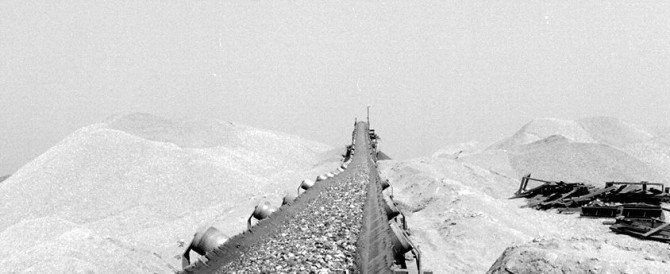Leading industry voices yesterday leapt into the debate on how to tackle the trade in so-called ‘conflict minerals’ by calling on the rare mineral to do more to police itself.
Companies that use this mineral have long been critical of government efforts to regulate their sector, claiming bureaucrats typically don’t understand the complex supply chains companies have worked hard to set up. “We’ve made great progress,” said one industry insider, “and have now reached a point where most companies barely understand their own operations and supply chains.”
Yesterday’s interjection appears targeted at recent attempts to get companies themselves more involved in cleaning up the trade. Advocacy groups such as Global Witness have called on companies to conduct due diligence on their supply chains. This is a process designed to help companies identify and deal with risks that can arise when trading in precious minerals, such as tantalum. Companies have long been warned that the trade in these resources is financing conflict and human rights abuses in areas troubled by violence and instability.

Industry leaders have been sceptical of this new approach, arguing that the process is effectively impossible for companies that don’t want to do it.
Instead, industry voices have banded together and argued that policy makers should look not to them, but to the rare mineral itself.
“It is high time,” said one senior executive from the automotive industry, “for tantalum to accept some responsibility and show that it is willing to do its part to clean up the trade.” A compliance manager from the electronics industry added that “some progressive tantalum has chosen to be sourced responsibly, and has allowed us to bring you ever smaller, lighter, and cheaper gadgets. Unfortunately, there is still some tantalum that is resistant to change, and which still allows itself to be traded for profit by armed groups and shadowy security forces guilty of driving conflict and serious human rights abuses.”
“There is only so much governments, consumers, and we as companies can do,” she added. “Companies may mine, transport, trade, and process the material, but our hands are tied if tantalum itself is not committed to solving this terrible problem.”
Tantalum is a rare mineral with atomic number 73. It is coveted by many industries for its distinctive properties and resistance to corrosion. No tantalum was available to comment on this article.
Named after the Greek hero Tantalus, Tantalum is no stranger to controversy. The mineral’s ancient namesake is perhaps most famous for devising a punishment by which the victim was forced to stand beneath a tree, but without ever being able to grasp the fruit of its low-hanging branches. “We know how he feels,” said one civil society campaigner who declined to be named.
Tantalum, or coltan, is critical to the production of the tantalum capacitors at the heart of many electronic gadgets, from mobile phones to your laptops and game consoles. Large quantities of tantalum are found in the Democratic Republic of Congo, where mining, smuggling, and illegal taxation has provided funding to violent armed groups and members of the security forces.
Michael Gibb leads the Conflict Resources Campaign at Global Witness. Follow him on Twitter at @GibbMichael